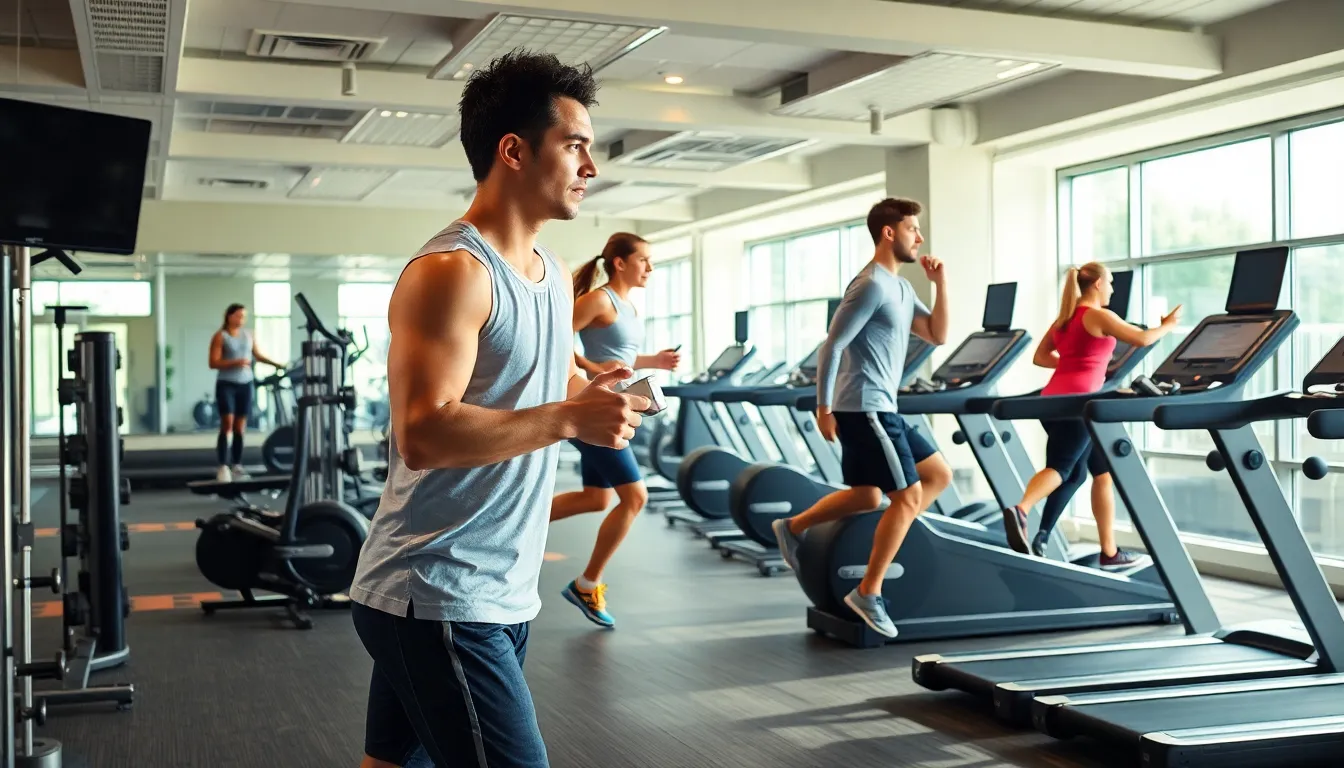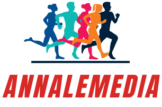In a world where couch potato championships are all the rage, sports exercise science steps in like a superhero in spandex, ready to save the day. It’s the secret sauce behind athletic performance, injury prevention, and that elusive six-pack everyone dreams of. Whether you’re a weekend warrior or a professional athlete, understanding the science of exercise can transform your game and maybe even help you fit into those jeans from last summer.
Imagine unlocking the keys to peak performance while avoiding injuries that feel like they were designed by a sadistic personal trainer. With sports exercise science, it’s not just about lifting weights or running laps; it’s about optimizing every move you make. So grab your water bottle and get ready to dive into a world where science meets sweat, and maybe even a few laughs along the way.
Sports Exercise Science
Sports exercise science focuses on the systematic study of human movement. This discipline combines anatomy, physiology, biomechanics, and psychology to improve athletic performance and enhance overall fitness. It applies scientific principles to understand how the body responds to physical activity.
Data-driven insights from research contribute to developing effective training programs. Coaches and trainers use these methods to optimize workouts, ensuring that athletes achieve peak performance while minimizing injury risks. The ability to assess an athlete’s strengths and weaknesses guides tailored strategies for improvement.
Nutrition plays a critical role in this field. Proper dietary choices support energy levels and recovery, impacting overall performance. Utilizing nutritional science helps athletes make informed decisions about supplements and meal timing.
Technological advancements also enhance the efficacy of sports exercise science. Wearable devices provide real-time data on heart rate, movement patterns, and fatigue levels. This information can help athletes and coaches adjust training regimens instantaneously for maximum effectiveness.
Injury prevention is a key aspect of sports exercise science. Understanding biomechanics allows for identifying risky movement patterns. Prevention programs can then address these issues, reducing the likelihood of injury occurrence.
Moreover, mental training techniques significantly influence athletic success. Techniques such as visualization and focus enhancement support athletes in achieving psychological resilience. Research in sports psychology emphasizes the importance of mental preparation alongside physical training.
Ultimately, sports exercise science serves as a vital resource for everyone involved in physical activity, whether for competitive sports or general fitness. By applying the principles of this science, individuals can enhance performance, enjoy workouts more, and achieve fitness goals effectively.
Major Disciplines in Sports Exercise Science

Sports exercise science includes several major disciplines that contribute to understanding and enhancing athletic performance. These fields intertwine to support physical and psychological growth in athletes.
Physiology of Exercise
Physiology of exercise studies how the body responds to physical activity. Understanding energy systems clarifies how different exercises impact muscle function and endurance. Knowledge of cardiovascular, respiratory, and muscular adaptations guides the development of effective training plans. Research shows that tailored training increases efficiency in oxygen uptake and utilization. Monitoring these physiological responses helps athletes train smarter and optimize recovery.
Biomechanics
Biomechanics examines movements and forces at play during physical activities. Analyzing joint mechanics and motion patterns reveals how body alignment affects performance. Application of biomechanical principles contributes to the design of sport-specific training regimens. Appropriate techniques can prevent injuries by identifying improper movement patterns. Utilizing advanced technology allows for detailed assessments and adjustments, enhancing training outcomes.
Sports Psychology
Sports psychology focuses on the mental aspects of athletic performance. Techniques such as goal-setting and visualization foster motivation and resilience. Psychological factors influence stress and focus, impacting performance under pressure. Research indicates that mental training can improve outcomes in competitive sports. Emphasizing the importance of mindset, athletes can better handle challenges and enhance overall performance.
Benefits of Sports Exercise Science
Sports exercise science significantly enhances athletic performance and reduces injury risks. Understanding the principles behind exercise leads to more effective training strategies.
Improved Athletic Performance
Enhanced athletic performance stems from scientific methods applied to training programs. Coaches analyze physiology to tailor workouts that maximize strength and endurance. Research-driven techniques boost speed through targeted drills, while proper nutrition supports overall health and energy levels. Individual assessments allow for personalized approaches that target specific skill sets. Using data analytics, trainers can gauge progress and make necessary adjustments, fostering continuous improvement.
Injury Prevention and Rehabilitation
Injury prevention relies on a thorough understanding of biomechanics. Recognizing risky movement patterns helps in designing training regimens that promote safe techniques. Implementing warm-up protocols and strength training significantly reduces the likelihood of injuries. Rehabilitation processes also benefit from exercise science, as tailored recovery plans expedite the healing process. Evidence-based strategies guide practitioners in creating effective rehabilitation programs, allowing athletes to return to peak performance more efficiently.
Current Trends in Sports Exercise Science
Current trends in sports exercise science highlight the integration of innovative technology and advanced nutritional strategies to enhance athletic performance.
Technology in Sports Training
Wearable devices now track metrics such as heart rate, pace, and muscle exertion during training sessions. Coaches analyze this data to make informed decisions that optimize athletes’ performance. Virtual reality training environments are gaining popularity as they simulate game conditions, helping athletes prepare mentally and physically. Advanced analytics software processes performance data to identify areas for improvement, providing tailored feedback. Personalized training apps also deliver adaptive workout plans, keeping athletes engaged and motivated.
Nutrition and Supplementation
Nutrition’s role in sports performance continues to expand, with evidence showing its influence on energy levels and recovery. Athletes focus on macronutrient ratios for optimal performance, prioritizing carbohydrates for fuel and protein for muscle repair. Supplements like branched-chain amino acids and antioxidants are increasingly used to enhance recovery and reduce inflammation. Additionally, hydration strategies are essential, as proper fluid intake directly affects physical performance. Nutritionists now work alongside trainers to create individualized meal plans that address specific athletic demands, ensuring comprehensive support for athletes’ goals.
Conclusion
Sports exercise science plays a crucial role in shaping the future of athletic performance and fitness. By integrating various disciplines such as physiology, biomechanics, and psychology, it offers a comprehensive approach to training and injury prevention. The insights gained from research and technology empower athletes and coaches to make informed decisions that enhance performance while reducing risks.
As the field continues to evolve, embracing innovative techniques and personalized strategies will become increasingly important. Athletes who leverage the principles of sports exercise science can expect to optimize their training, improve recovery, and achieve their fitness goals more effectively. This science isn’t just for elite athletes; it’s a valuable resource for anyone looking to elevate their physical activity experience.

